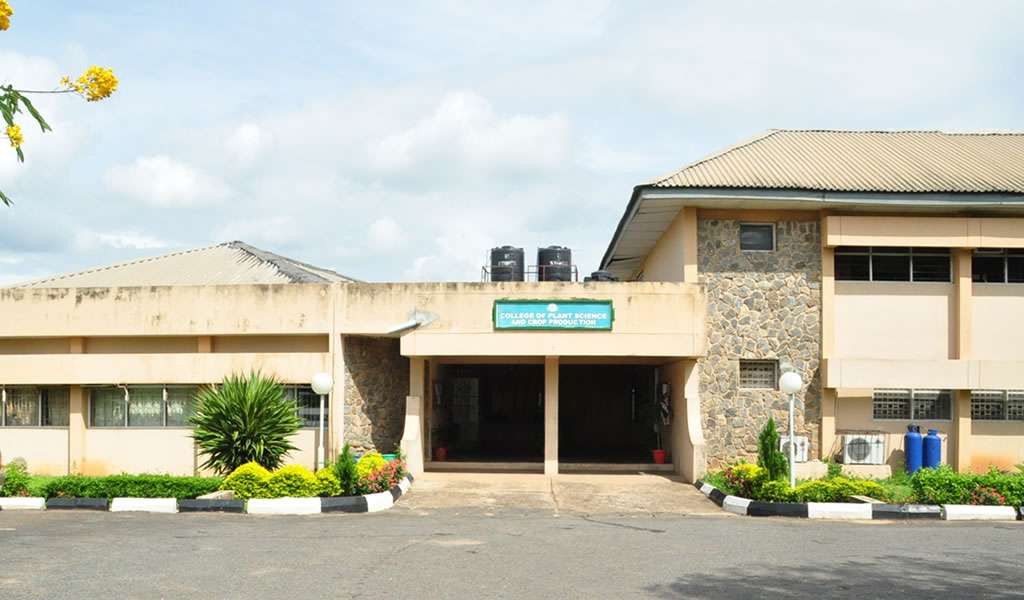Introduction
The College of Plant Science and Crop Production (COLPLANT) was established on October 1, 1989 as a logical development from the erstwhile College of Agricultural Production and Technology, Abeokuta. Since then the College has grown in terms of Departments, Staff and Students. Presently the College has five academic Departments, namely:
- Department of Crop Protection
- Department of Horticulture
- Department of Plant Breeding and Seed Technology
- Department of Plant Physiology and Crop Production, and
- Department of Soil Science and Land Management
Philosophy, Aims and Objectives
The Departments aim at training skilled manpower for sustainable food production and natural resource management. The human resources and facilities in the departments make the development of these experts possible through the undergraduate programme of the departments. The primary philosophy guiding the training of students in the College is the production of skilled manpower that is adequately furnished with the comprehensive information required for economic agricultural production in an environment characterised by rural setting and adequate land endowment.
Such knowledgeable professional manpower has to have adequate exposure with the widest possible human and material resources. The training programmes are mounted through classroom instruction, laboratory practical, field demonstration, and workshop practices. Consequently, there are opportunities for formal training at the Undergraduate and Postgraduate levels for the acquisition of appropriate qualification.
Deriving from the foregoing philosophy, the major objectives of the College, among others are to:
- assist in the attainment of self-sufficiency in the production of basic food;
- contribute to the achievement of the goal of marked increase in the production of agricultural raw materials to support the growth of our several industries;
- enhance the production and processing of export produce with emphasis on relevant, appropriate and manageable technology to modernize agricultural production, processing, storage, preservation and distribution;
- enhance the rural employment opportunities and the attendant improvement of the quality of rural life;
- evolve effective ways of protecting agricultural land resources from ecological degradation such as erosion, pollution;
- develop new patterns of agricultural management through increase in Agricultural leadership willing to innovate and show spirit of adventure, increase reliance on the use of business techniques and banking facilities in the production and marketing processes; and create a new cadre of farmers who can influence agricultural structures and government policies which clearly demonstrate that agriculture as an enterprise, is an important part of our national economy.


